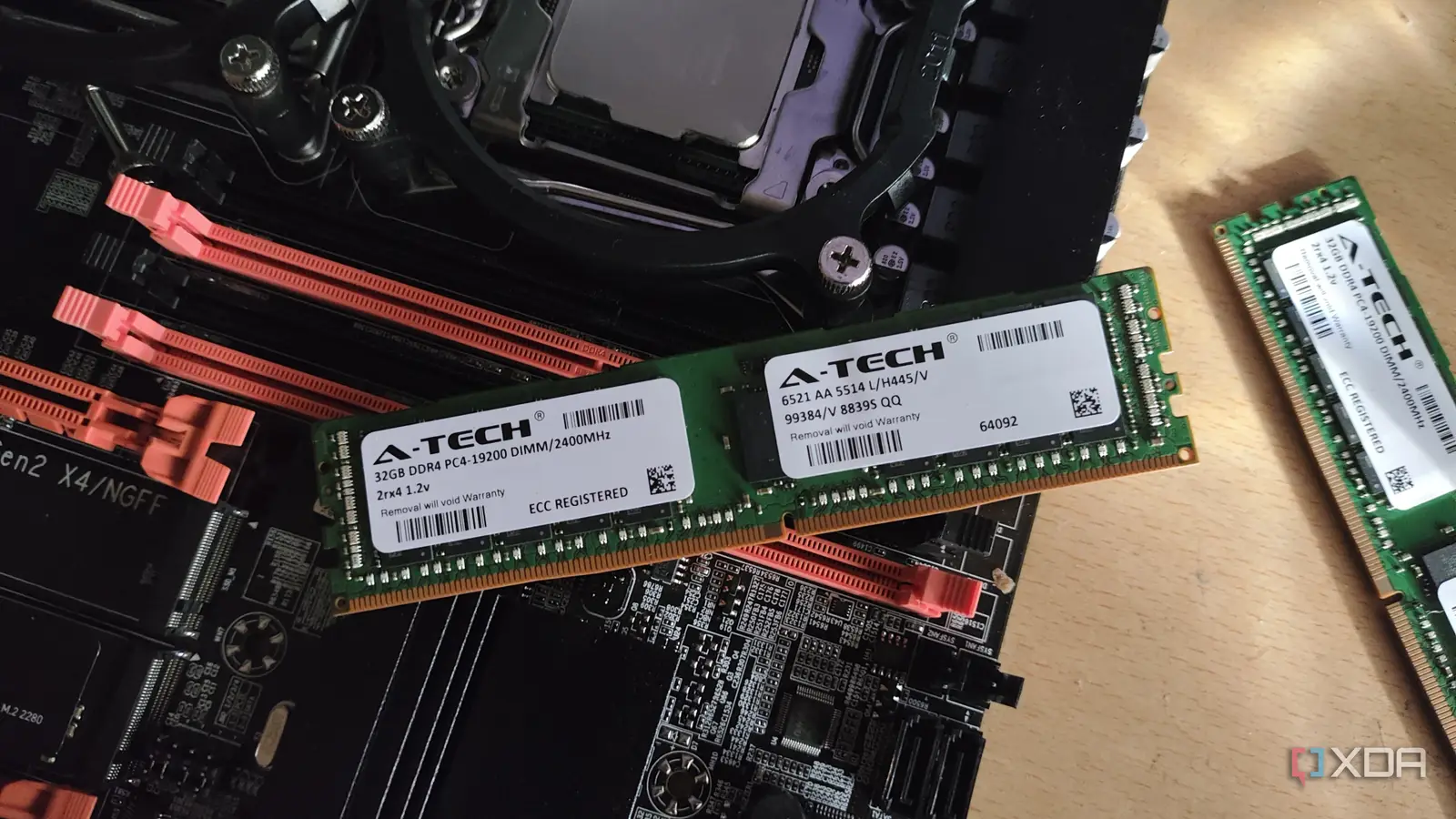
Besides the bright RGB lights that they’re often adorned with, RAM sticks aren’t flashy. They’re there to perform one essential task, and that’s it. On consumer PCs, they’re relied on to store important data that the rest of your system might need quick access to in day-to-day computing, gaming, and creative workloads.
If you’ve poked around for PC parts and found yourself looking at workstation or server hardware, you’ve probably heard of ECC, which stands for Error-Correcting Code. RAM sticks with this feature are sold at a premium for servers and workstation use, and while you might be tempted to try some of these fancy sticks in your own system, ECC RAM really isn’t worth it for most people.
Compatibility is limited
You’re heavily restricted
ECC RAM is really only compatible with server and workstation motherboards, and while it may run just fine when installed on a normal consumer-grade motherboard, the ECC features will likely be ignored, and the system will treat them as if they were standard memory modules.
It doesn’t stop at the motherboard level, either. ECC DIMMs will often require server-grade processors as well, like a Threadripper from AMD or a Xeon from Intel. These processors, when combined with the appropriate motherboard, will have the ability to run ECC memory in a fully validated capacity. Even if you do swap your daily driver over to a system that supports ECC, you’ll lose any sort of benefits you gain from XMP/EXPO, as these profiles are usually unsupported by ECC DIMMs.
It costs more
There’s a significantly higher cost to running ECC memory
ECC RAM will cost you a pretty penny, and not just in terms of cost-per-gigabyte. While it’s true that ECC DIMMs are inherently more expensive than their non-ECC counterparts, the platform is really what will cost you more.
To actually run ECC memory with the error-correcting benefits, you need a motherboard and CPU that supports it, both of which are significantly more expensive than consumer parts. For the amount that you might spend to get the ECC benefits, it’s likely that you’d be able to get faster consumer-grade memory at a higher capacity.
Consumer RAM is already pretty reliable
It’s good enough
In terms of what the vast majority of people will be using their PC for, consumer memory is more than enough. DDR4 and DDR5 modules from reputable manufacturers go through incredibly rigorous testing before being put on shelves, so defective sticks are incredibly rare. Furthermore, the likelihood of encountering a memory error that you actually notice is incredibly small.
Most of the crashes and problems the average consumer will encounter will likely be due to a completely different component or an issue with the OS, not memory. Overheating, an aging or bad power supply, or even a poor undervolt/overclock are way more likely to be the culprit.
Consumer workloads don’t require error correcting
It’s just not worth it
Error-correcting memory definitely sounds like something that could be nice to have for your personal rig, but when you consider what you’ll actually be doing on your PC, the benefits will almost certainly not be felt by you. ECC RAM might fix single-bit memory errors, but for the types of workloads consumer PCs usually undergo, these errors are exceedingly rare. Gaming, for example, reaps zero benefits from ECC memory, and for creative tasks like content creation, auto-save functions are often good enough for mitigating any kind of instability. You might even notice worse performance with ECC RAM as the speed is likely to be worse than a consumer kit at a similar price.
ECC memory is needed for high-uptime services where downtime is catastrophic, or data integrity is paramount. Things like databases, virtualized environments and any kind of scientific workload gain a ton of value from error-correcting. The stakes are just completely different. In a consumer environment, the worst case scenario of a RAM error is a system crash, while in an enterprise environment, there could be millions of dollars at stake.
ECC RAM isn’t worth the premium for consumers



